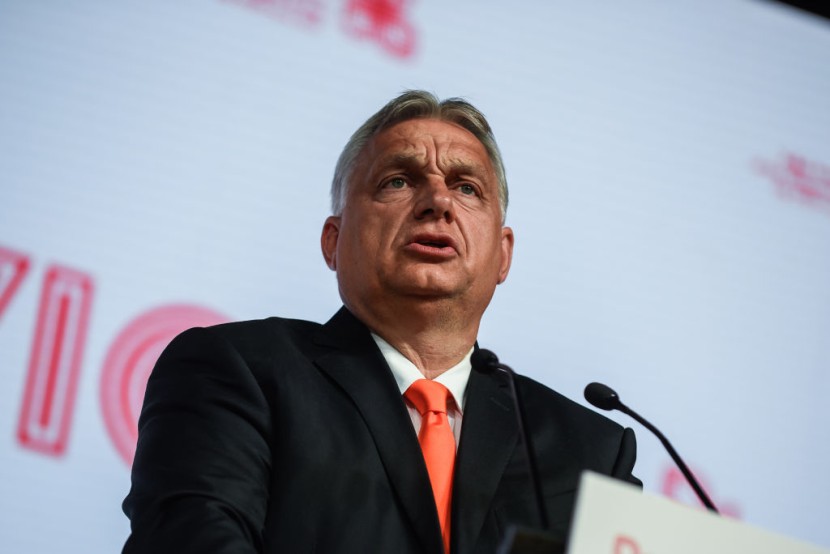
Hungarian authoritarian leader, Prime Minister Viktor Orban, who recently won the region's nationwide election, signaled his support for Russia after calling Ukrainian President Volodymyr Zelensky an "opponent."
The prime minister's remarks come after he declared victory on Sunday with partial results that showed that his Fidesz party was leading the vote by a wide margin. Orban is planning to get a fourth consecutive term in office. The preliminary results suggest his party will have control of 135 seats of the 199-seat Parliament.
Longtime Support for Russia
The numbers showed that Orban's party had a considerable lead ahead of the opposition alliance United for Hungary, which is expected to get control of only 57 seats. The data comes from 80% of the votes being counted.
In previous years, the country's election involving Orban had been predicted to be closer but still had Fidesz leading by roughly 5% to 6%. The authoritarian leader is known to be the most pro-Kremlin official of the 27 nations of the European Union and has spent 12 years in power in Budapest. Orban has been the country's longest-serving leader since the fall of communism in 1989 and has been considered a hindrance by the EU, as per CNBC.
Hungary's election campaign was dominated by Moscow's invasion of Ukraine, prompting intense scrutiny of Orban's longtime association with Russian President Vladimir Putin. In his victory speech, the prime minister said that Zelensky was an opponent that he had to overcome during the campaign.
The region is highly dependent on the Russian energy supply, and for a long time, Orban has avoided opportunities to condemn Putin's assault on its neighboring state. The situation complicated the EU's efforts to present a united front against him.
According to CNN, Orban said, during his victory speech, that his party had such an overwhelming lead you could see it from the Moon and from Brussels. His remarks referenced his long-running tensions with EU leaders.
Hungarian Authoritarian Leader
With Orban's expected constitutional majority, he could have the power to continue making deep unilateral changes to the Central European nation. State secretary Zoltan Kovacs said that the participation of many parties in the election at an event on the Danube river showed the strength of Hungary's democracy.
Opposition leader Peter Marki-Zay was not able to win a majority vote in his home district, trailing Fidesz incumbent Janos Lazar by more than 12 points. The situation became discouraging for the prime ministerial candidate who had promised the people to end what he claimed was rampant government corruption.
Furthermore, the radical right-wing party Our Homeland Movement appeared to have gained more than 6% of the vote, a surprising performance that exceeded the 5% threshold needed to gain seats in parliament. Opposition parties and international observers have alleged that there were structural impediments to defeating Orban.
They noted that there was pervasive pro-government bias in the public media, the domination of commercial news outlets by Orban allies, and a heavily gerrymandered electoral map. A political scientist at the Polish Academy of Sciences in Warsaw, Edit Zgut, predicted Orban's clear victory would further give him the power to move in an autocratic direction by sidelining dissidents and capturing new areas of the economy, the Associated Press reported.
Related Article: Russia-Ukraine War: Volodymyr Zelensky Fires 2 Top Generals, Calls Them 'Antiheroes' and 'Traitors'
© 2025 HNGN, All rights reserved. Do not reproduce without permission.








